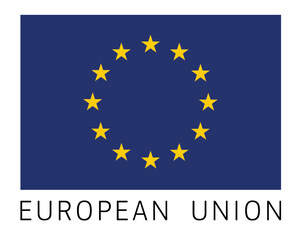U.S. High School Students Solve The Euro's Challenges?
American High School Teams from 15 States Compete in the 2011 Euro Challenge
WASHINGTON, March 14, 2011 /PRNewswire-USNewswire/ -- American high school students taking part in the 2011 Euro Challenge competition are poised to solve Europe's economic problems. Now in its sixth year, the Euro Challenge is an academic contest that provides a unique and exciting educational opportunity for thousands of students from across the United States to learn about the European Union – the largest economic partner of the U.S. – and the economies that share its single currency, the euro. In the competition, participants showcase their knowledge of everything from ballooning government deficits to rising unemployment, and make policy recommendations to solve these and other challenges confronting countries.
The Euro Challenge fosters a better understanding of the European economy and transatlantic economic relations, and it supports local learning objectives in economics and finance. The competition continues to expand nationally. This year, 79 high school teams from 15 states (Connecticut, Florida, Illinois, Indiana, Iowa, Massachusetts, Michigan, New Hampshire, New Jersey, New York, North Carolina, Pennsylvania, Rhode Island, Virginia, and Wisconsin) will compete in the contest. Regional rounds kick off on March 22 and culminate in the finals at the Federal Reserve Bank of New York City on April 27.
"We welcome the growing number of states and schools participating in this year's Euro Challenge competition," said Ambassador Joao Vale de Almeida, Head of the European Union Delegation to the United States. "We started out with ten schools from two states in the program in 2006 and in just six years we have grown to 79 schools from 15 states. The Euro Challenge has reached thousands of American high-school students, teaching them valuable lessons about the European Union and why strong transatlantic relations are so crucial. The competition brings the EU to life, better than any text book or website, and it fosters a life-long interest in economics and the EU-U.S. partnership."
The 9th and 10th grade students spend months researching European economic policy and history with the help of mentors from their schools and resources provided by the EU Delegation. Teams of three to five students are asked to make presentations about the economic situation of a specific European country of the "euro area" (the 17 EU member countries that have adopted the euro so far) and must answer questions to showcase their grasp of economic issues.
The winning teams will receive monetary awards provided by the Moody's Foundation, along with a trip to Washington, D.C. for the top two teams.
"Moody's is proud of its continued support of the Euro Challenge," said Frances G. Laserson, president of The Moody's Foundation. "This competition enables the next generation to see the value in acquiring the skills and knowledge necessary to understand global economic issues."
The Euro Challenge is a program launched and supported by the Delegation of the European Union to the United States. The national coordinator of the competition is w!se (Working in Support of Education).
Other partner organizations include:
- The Moody's Foundation;
- Credit Suisse;
- The Federal Reserve Banks of New York, Chicago, Boston, Atlanta (Miami branch) and Cleveland (Pittsburgh branch);
- European Union Centers of Excellence at Florida International University/University of Miami, the University of North Carolina, University of Michigan, and the University of Pittsburgh;
- The European Union Centers at the University of Illinois, University of Wisconsin and University of Indiana;
- The European Union Studies Center at the Graduate Center of the City University of New York.
For further information on this year's competition and enrolment for 2012, please visit:
SOURCE Delegation of the European Union to the United States
WANT YOUR COMPANY'S NEWS FEATURED ON PRNEWSWIRE.COM?
Newsrooms &
Influencers
Digital Media
Outlets
Journalists
Opted In




Share this article